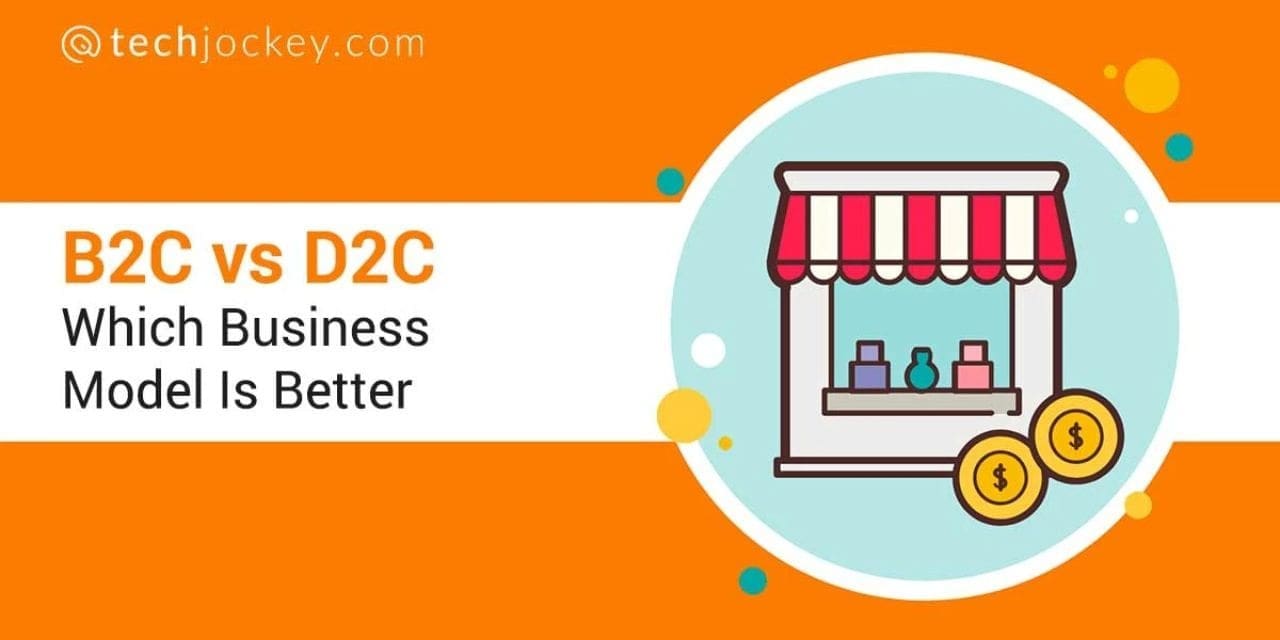-By Mansi Suryavanshi.
B2C D2C sales models refer to those used by businesses to offer goods and services. B2C: branding and customer experience, D2C: direct sales to customers, eschewing retail channels, and B2B: partnerships with other firms. It is critical for businesses to comprehend the various sales models at their disposal in the cutthroat commercial environment of today.
Business-to-business (B2B), business-to-consumer (B2C), and direct-to-consumer (D2C) models are the three most common types, but what do these phrases represent, and how do they differ? Direct-to-consumer (D2C) refers to a business strategy where corporation sells its goods directly to customers instead of through conventional retail channels.
Contrarily, a business model has known as B2B refers to a situation in which company sells its goods or services to other businesses. Business-to-consumer (B2C) is another business strategy that involves a corporation selling its goods or services directly to customers.
In an order to help you better grasp the distinctions and make decisions for your own business, we will present thorough knowledge of all three b2b b2c d2c sales models in this post. This understanding will also include examples of businesses that employ each model.
1.B2B (Business-to-Business): A company’s business model in which it sells its goods or services to other companies is known as a B2B model. A business-to-consumer (B2C) approach, in contrast, allows a corporation to offer its goods or services directly to customers. Compared to B2C sales, B2B sales often include larger transactions and longer sales cycles. Since it’s important to comprehend the client’s needs, the client’s industry, and how the product or service will be used within their company, B2B sales can be more challenging. Additionally, trust must be established while delivering excellent service and support.
B2B (Business-to-Business) benefits include:
Better Profit Margins: Because they can charge more for their specialised products and services, B2B businesses sometimes have better profit margins than B2C businesses.
Long-term Ties: B2B businesses frequently develop long-term ties with their clients, which results in more steady and predictable revenue streams.
Less Customers: B2B businesses often have fewer clients than B2C businesses, but these clients tend to buy more frequently and at higher prices.
B2B businesses frequently offer specialist, sophisticated products and services that call for a high level of knowledge and skill.
Marketing That Is More Focused: B2B enterprises can target particular industries and companies, enabling more focused and successful marketing initiatives.
2.Direct-to-Consumer (D2C): A business strategy known as “direct-to-consumer” (D2C) involves a corporation selling its goods directly to customers rather than through conventional retail channels like supermarkets, department shops, and other physical merchants. Typically, this means that a business will sell its goods online, either through e-commerce websites or through its own website. The business might also offer its goods through a physical store or showroom, but it places more of an emphasis on bypassing intermediaries and connecting with customers directly. By giving businesses more direct access to their customers and greater control over the sales process, this business model has the potential to boost customer happiness and brand loyalty.
D2C (Direct-to-Customer) benefits:
Increased Control over the Customer Experience: Direct-to-consumer (D2C) businesses can forge stronger bonds with their clients by being in complete control of the purchasing process, from product development to delivery.
Increased Profitability: D2C businesses can raise their profit margins and maintain more control over pricing by eliminating intermediaries.
Data gathering and analysis: Direct interactions with customers and internet tracking allow direct-to-consumer businesses to amass important customer data that can be used to guide marketing and product development decisions.
Faster Time-to-Market: D2C businesses can launch new products more quickly because they can avoid using traditional retail channels.
CONCLUSION:-
In conclusion, the paper offers a thorough breakdown of the crucial distinctions between B2B B2C and D2C business models. Each business model’s examples and salient distinctions are described in the article. Additionally, it draws attention to the benefits and drawbacks of each model as well as the particular difficulties that each one faces. Overall, the essay serves as a useful tool for anyone interested in learning about the nuances of various business models and how they vary in terms of client focus, sales strategy, and revenue streams.

